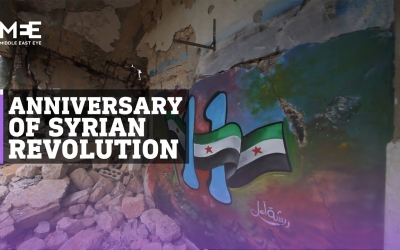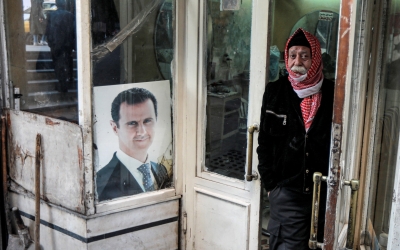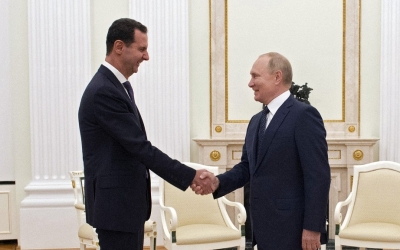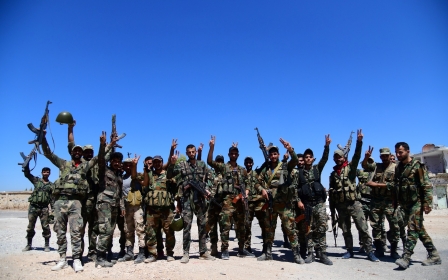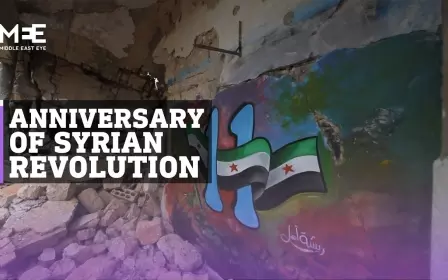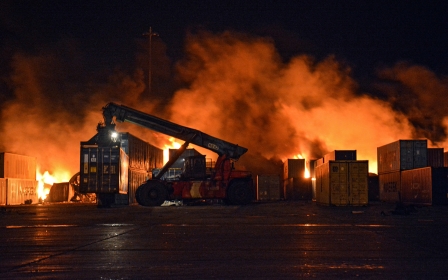Russia-Ukraine war: Moscow could close Syria aid corridor in response to conflict
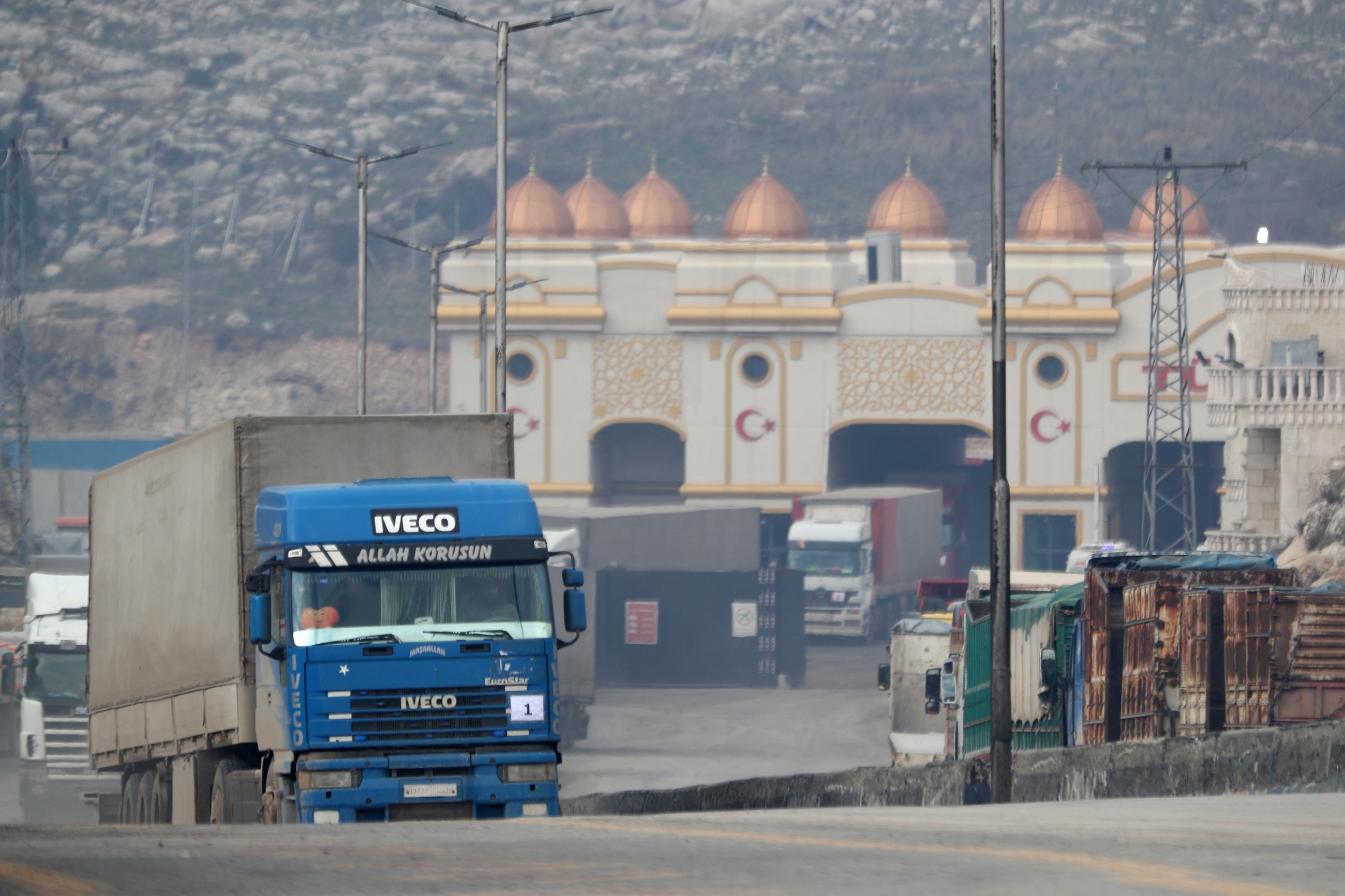
Russia may look to shut down the last UN humanitarian corridor into Syria in response to escalating tensions with the West following Moscow's invasion of Ukraine, analysts and NGO officials warned US lawmakers on Wednesday.
More than 1,000 truck loads of aid pass through the Bab al-Hawa border crossing between Syria and Turkey each month, mainly serving the 3.4 million people living in Syria's northwest Idlib region, one of the last bastions of rebel-held territory in the country.
UN spokesman Stephane Dujarric said earlier this year that the organisation's ability to deliver aid across Syria's border with Turkey was "essential."
"We need aid to be delivered through cross-border and through cross-line. Those are essential elements for us to meet the humanitarian needs of all Syrians," he said.
Moscow, the primary backer of Bashar al-Assad's Syrian government, has already used its veto power on the Security Council, along with China, to shut down crossings in Jordan, Iraq and Turkey that the UN established to ensure aid reached civilians across all lines of the conflict.
Russia claims that Damascus is capable of distributing all international aid and that crossings in rebel-held territory are a violation of the government's sovereignty.
A last minute compromise in July at the UN Security Council between the US and Russia that allowed for a 12-month extension of the aid deliveries through the Bab al-Hawa crossing is set to expire this summer.
At the time, the US ambassador to the United Nations hailed the agreement as "an important moment" in the two countries' relationship. The vote followed a summit meeting in Geneva, where US President Joe Biden pressed Russian President Vladimir Putin to support the proposal.
'We are in for a very rough ride'
Ties have since plummeted to Cold War-era lows following Russia’s invasion of Ukraine. And while Moscow and the West face-off in Eastern Europe, many are concerned the Kremlin could look to retaliate in Syria and other regional hotspots.
"Given what's happening in Ukraine and watching the posture of the Russians in the Security Council over the last couple of weeks, I think it is fair to say that we are in for a very rough ride," Hardin Lang, vice president for programmes and policy at Refugees International, told US House of Representatives lawmakers on Wednesday at a subcommittee hearing on Syria.
The humanitarian situation in Syria after 11 years of conflict is particularly dire. According to the UN, the poverty rate stands at 90 percent, with 14.6 million people dependent on humanitarian aid.
Compounding matters is Syria's near total reliance on Russia for wheat imports. There are fears that the conflict in Ukraine, which is already driving up commodity prices in the region, could exacerbate Syria's inflation rate, which hit 140 percent this year.
The Syrian government has begun rationing staples such as wheat, sugar, cooking oil and rice.
Conditions in Idlib are even worse, with 97 percent of the population living in extreme poverty and 80 percent relying on food assistance daily, according to the UN. Nearly two million of the province's residents are internally displaced and reside in makeshift or formal refugee camps.
There is also a concern that any halt in aid could spark another refugee crisis along Turkey's border, potentially spilling over into Europe.
"Assuming that Russia will veto the cross border aid mechanism, what does an alternative system of aid delivery look like?" Democratic Congresswoman Kathy Manning asked at Wednesday's hearing.
'Siphoning millions'
Relief agencies and foreign governments have been looking at measures to keep the aid flowing. Jomana Qaddour, head of the Syria Project at the Atlantic Council, told lawmakers that "there is absolutely a way to go through Turkey," but warned it would be hard for local organisations to match the capabilities of the UN.
Donors are discussing ways to create their own pooled fund to replace the current one managed by the UN, and are also looking at means to coordinate actions on the ground. But many relief organisations are also at risk of loosing their funding if the UN mandate is not renewed.
Damascus and its Russian backers could try to use a potential closure of the Bab al-Hawa crossing to increase their control over aid flows and boost the Assad government's authority in the country.
Democratic Congressman Ted Deutch, chairman of the House Foreign Affairs Subcommittee on the Middle East, North Africa and Global Counterterrorism, said it was important for the US to prevent Assad from leveraging aid further.
"The Assad regime has been manipulating aid for over a decade, siphoning millions of dollars from international donors and humanitarian organisations by withholding aid to opponents, channeling it to allies, and engaging in currency manipulation," he said.
A report by the Washington-based Center for Strategic and International Studies published last year revealed that the Assad government had stolen millions of dollars in international aid by distorting the country's rate of currency exchange.
According to the authors, Damascus kept 51 cents of every international aid dollar spent in Syria in 2020.
Middle East Eye delivers independent and unrivalled coverage and analysis of the Middle East, North Africa and beyond. To learn more about republishing this content and the associated fees, please fill out this form. More about MEE can be found here.


